#STP Plant manufacturer in India
Explore tagged Tumblr posts
Text
Sewage Treatment Plant Manufacturer in Delhi
Are you looking for Best STP Plant Manufacturer in Delhi? Look no further than RJ Jal Raksha Waste Water Treatment Organization, We are a leading manufacturer and supplier of Sewage Treatment Plant Offering Delhi, Ghaziabad, Noida, Greater Noida, Uttar Pradesh, Gujarat, Ahmedabad, Mumbai, Bengaluru and many other cities in India.

For any query, please contact us!
Call Now :- 07017079891
Website :- www.rjjalraksha.com/
#Sewage Treatment Plant Manufacturer in Delhi#STP plant manufacturer#STP plant manufacturer in India#STP plant supplier in India#sewage treatment plant manufacturer in India
1 note
·
View note
Text
Top 10 Benefits of Sewage Treatment Plant
Here are the Top 10 Benefits of Sewage Treatment Plant (STP Plant):
1. Protecting Public Health
Sewage treatment plants are fundamental in preventing the spread of waterborne diseases. By treating wastewater before it is released into the environment, STPs remove harmful pathogens and pollutants that could otherwise contaminate drinking water supplies and recreational waters. This helps to significantly reduce the risk of illnesses such as cholera, dysentery, and hepatitis.

2. Safeguarding the Environment
Untreated sewage can be detrimental to the environment, leading to pollution of rivers, lakes, and oceans. STPs play a crucial role in minimizing this impact by breaking down organic matter and removing harmful chemicals. This treatment process helps preserve aquatic ecosystems, maintain water quality, and protect wildlife habitats.
3. Enhancing Water Quality
By removing contaminants, sewage treatment plants improve the quality of water that is eventually released back into natural water bodies. Treated water is generally cleaner and less polluted, which supports healthier aquatic life and reduces the risk of algae blooms that can result from nutrient overloads in untreated sewage.
4. Recovering Valuable Resources
Modern sewage treatment plants are equipped with technologies that allow for the recovery of valuable resources. For instance, biosolids (the solid by-products of the treatment process) can be converted into fertilizers, and methane gas generated during treatment can be harnessed as a renewable energy source. This not only reduces waste but also contributes to sustainability efforts.
5. Supporting Sustainable Urban Development
As cities grow, the demand for efficient waste management systems increases. STPs enable sustainable urban development by providing the infrastructure needed to handle large volumes of wastewater. This ensures that growing populations can be accommodated without compromising environmental standards or public health.
6. Reducing Pollution and Odors
Sewage treatment plants help mitigate pollution and unpleasant odors associated with raw sewage. Through advanced treatment processes, STPs can significantly reduce the concentration of pollutants and eliminate foul smells, leading to a cleaner and more pleasant environment for nearby communities.
7. Promoting Economic Development
A well-managed sewage treatment plant is an asset to any community, fostering economic growth. It creates jobs, supports local businesses, and attracts investment by ensuring that urban areas are equipped with reliable waste management solutions. Additionally, the treated water can sometimes be used for non-potable purposes, such as irrigation, which can reduce costs for local industries and municipalities.
8. Complying with Regulations
Regulations regarding wastewater treatment are stringent in many countries. STPs help municipalities and industries comply with environmental laws and standards, avoiding legal penalties and contributing to overall regulatory adherence. Compliance ensures that communities meet the required environmental quality benchmarks and promotes responsible waste management practices.
9. Mitigating Climate Change
Some sewage treatment plants incorporate technologies that reduce greenhouse gas emissions. For example, capturing methane from the treatment process for energy production helps reduce reliance on fossil fuels. Additionally, advancements in treatment technology continue to improve the energy efficiency of these facilities, further supporting climate change mitigation efforts.
10. Educational and Research Opportunities
Sewage treatment plants serve as valuable sites for research and education. They provide real-world examples of complex environmental processes, offering insights into waste management, water conservation, and sustainable technologies. Educational programs and research initiatives centered around STPs help advance our understanding and drive innovation in environmental protection.
Conclusion
Sewage treatment plants are far more than just facilities for disposing of waste — they are critical components of modern infrastructure that provide extensive benefits for public health, environmental protection, and sustainable development. By ensuring effective wastewater management, STPs help create healthier, cleaner, and more resilient communities, underscoring their indispensable role in our increasingly interconnected world.
Top Sewage Treatment Plant Manufacturer in India
Are you looking for a STP Plant Manufacturer in India?, look no further than TR Aqua Private Limited, We are a leading manufacturer and supplier of STP Plant in India.
For More Details, Please Contact us!
Website :- www.traqua.in
Contact No. :- +91–9971440474
Email :- [email protected]
#Sewage Treatment Plant Manufacturer in India#Sewage Treatment Plant Supplier in India#STP Plant manufacturer in India#STP Plant Supplier in India#tr aqua private limited
1 note
·
View note
Text
Sewage Treatment Plant: Meaning & Process

The STP full meaning is a sewage treatment plant that collects, treats, and discharges wastewater safely into the environment. As an STP plant manufacturer, the goal of Ravi Enviro Industries Pvt.Ltd is to prevent water pollution, protect the ecosystem, and ensure the safe disposal of sewage water. To know about how STP plant works, get in touch with REIPL today.
#stp full meaning#stp plant manufacturer in india#sewage treatment plant#sewage treatment plant process#stp plants#wastewater treatment plant manufacturer in india#etp plant
0 notes
Text
#stp plant#best stp plant manufacturer#stp plant manufacturer in India#Best STP plant manufacturer in India#STP plant manufacturer in Ghaziabad#sewage treatment plant manufacturer in Ghaziabad#Best STP plant manufacturer in Ghaziabad
1 note
·
View note
Text
Effluent Treatment Plant
#sewage treatment plant#sewage treatment plant manufacturer in faridabad#packaged sewage treatment plant manufacturer in delhi#stp plant manufacturer#top sewage treatment plant manufacturer faridabad#stp plant manufacturer in delhi#india's largest sewage treatment plant in delhi#stp plant manufacturer in india#sewage treatment plant manufacturer in haryana#stp plant consultants and manufacturer in gurgaon#ro plant manufacturer in pune india
0 notes
Text
3D Aqua specializes in designing, manufacturing, installing, and maintaining advanced MBR & MBBR STP & ETP plants for industrial, commercial, and residential projects. With our expertise in wastewater treatment solutions, we offer custom designs, consultancy, and comprehensive after-sale services including AMC for plants ranging from 1 KLD to 2 MLD. Based in Noida, Uttar Pradesh, we are committed to delivering sustainable, efficient, and high-performance water treatment systems. Contact us today! #3DAqua #MBRSTP #MBBRETP #WaterTreatment #EffluentTreatment #SewageTreatment #WaterSolutions #WastewaterTreatment #NoidaWaterTreatment #STPDesign #ETPInstallation #WaterConsultancy #AMCServices #IndustrialWaterTreatment #SustainableWaterTreatment #CleanWater #WaterTreatmentIndia #WaterTech #WaterInnovation #EfficientWaterSystems #GreenWaterSolutions
#water treatment#wastewater management#stp plant manufacturer#india stp supplier#sewage treatment#sewage treatment plant supplier#sewage treatment plant#3d aqua
0 notes
Text
Why is pH Control Important in STP & ETP Plants?

In water treatment, it is crucial to ensure the proper functioning of sewage treatment plants (STP) and effluent treatment plants (ETP). One of the fundamental parameters that significantly impacts the performance and efficiency of these systems is the pH level of the water being treated. The pH impacts the chemical and physical properties of water, hence influencing the behaviour of contaminants, development of microbes and the wastewater treatment processes. So why is pH control important in STP & ETP plants? Read on!
Understanding pH Control in STP & ETP Plants
The meaning of pH stands for the potential of hydrogen ions in water. pH of water is a measurement of its acidity or alkalinity defined on the logarithmic scale ranging from 0 to 14. A pH of 7 is considered neutral, while a pH of below 7 implies acidity and values above 7 indicates alkalinity. Fluctuations in pH are normal, but they should stay between 6.3 to 7.6. Variations in pH values of effluents can impact the rate of biological reactions and the survival of various microorganisms. For instance, a pH that is too high or too low can disrupt the metabolic processes of these microorganisms, affecting their ability to break down organic matter. In some cases turning down the pH of the effluent is required for complex effluents to break the long chain compounds. This is why pH control in STP and ETP plants is critical.
Importance of pH Control in STP & ETP Plants
Effective Wastewater Treatment: Maintaining adequate pH levels is crucial for effective biological and chemical processes in wastewater treatment. Improper pH levels can impact the performance of these processes, resulting in poor removal of contaminants and odours and increased operational costs.
Regulatory Compliance: Environmental regulations have stringent standards set for effluent disposal. Failure to comply can lead to heavy penalties and legal proceedings. This is where ETP plant manufacturers in India play a crucial role, helping companies achieve and maintain compliance with regulations and standards.
Odour Control: Odour is a common issue in sewage treatment plants. Wastewater with improper pH levels can trigger the production of odorous gases like hydrogen sulfide. However, controlling the pH level can significantly reduce the production of these gases, creating a better workplace for STP plant operators and improving the quality of surrounding habitats.
Corrosion Prevention: The pH level of wastewater leads to corrosion of pipes, pumps and wastewater treatment plant equipment. This can add to maintenance and replacement costs along with the risk of contamination when corroded substances enter the WTTP system.
Sludge Management: When speaking of STP and ETP plants, sludge generation and treatment are of concern. Proper pH control can affect the properties of sludge, making it convenient to dewater, manage and dispose of. Sludge that is highly acidic or alkaline may need additional treatment processes. Maintaining the correct pH value allows for better sludge management.
Wrapping Up
pH control is essential for STP and ETP plants. It ensures operational consistency, optimizes treatments, protects the aquatic environment and eases sludge management. The inability to control pH can lead to operational shortcomings, ecological impact and WWTP performance. For businesses looking to optimize their ETP and STP plants, Ravi Enviro Industries Private Limited offers a comprehensive range of services. As one of the top effluent and sewage treatment plant manufacturers in India, we provide tailored solutions to ensure efficient pH control, compliance with regulations, and sustainability. To upgrade your existing water treatment facility, call us today.
Check out:- Common Effluent Treatment Plant Advantages
#Why is pH Control Important in STP & ETP Plants#sewage treatment plant manufacturers in India#wastewater treatment plant equipment#ETP plant manufacturers in India#Importance of pH Control in STP & ETP Plants
0 notes
Text
STP Plant manufacturers in India
Your trusted source for STP plant manufacturers in India. We offer cutting-edge wastewater treatment solutions to meet your environmental compliance needs.
0 notes
Text
STP vs. ETP: A Closer Look at Waste Management Solutions

What Are STP and ETP? Understanding the Basics
STPs and ETPs provide a crucial waste treatment role. Primarily treating domestic sewage, STP Plant Manufacturers design STPs to handle residential and municipal wastewater. They aim to clean water before releasing it into nature, making it safer for ecosystems. However, ETPs focus on industrial waste, including hazardous chemicals and pollutants discharged from factories and industrial areas. ETPs use advanced techniques to manage hazardous waste with a reduced environmental impact. Both STPs and ETPs follow essential treatment stages, including primary sedimentation, biological treatment, and filtration processes. ETPs, however, generally include more specialized chemical treatments designed specifically for industrial waste types.
They are doing their part for waste management. The main difference lies in the type of waste they process—domestic or industrial. Sewage Treatment Plant in India facilities are crucial in preventing contamination of ecosystems. STPs and ETPs focus on specific waste types to support sustainable environmental practices. Selecting the proper plant type ensures wastewater receives the correct treatment before release. Effective management of both STP and ETP facilities improves water safety and public health. Their implementation demonstrates a commitment to protecting clean, usable water resources.
Key Differences Between Sewage Treatment Plants (STP) and Effluent Treatment Plants (ETP)
The function and operation of STPs and ETPs are very different. Effluent Treatment Plant facilities are designed to handle industrial waste, whereas STPs treat domestic wastewater from residential areas. Sewage treatment primarily targets organic waste and household pollutants. In contrast, ETPs handle industrial waste, which tends to be toxic or hazardous. ETPs focus on waste generated by industries such as chemicals, pharmaceuticals, and textiles. Treatment in STPs mainly involves biological processes like microbial degradation. However, industrial toxins require specific treatment processes, and Effluent Treatment Plant facilities are necessary to neutralize these chemicals effectively.
Both STPs and ETPs use sedimentation and filtration, though ETPs operate on a larger scale and with more complexity. Harmful pollutants make industrial waste treatment subject to more stringent safety, and environmental compliance. ETPs, on the other hand, industries own and operate, co-managing them with municipalities. Every type of plant has a particular role to play in waste management. The choice between ETPs and STPs depends upon the type of wastewater and its source. Each serves unique requirements and thus they make up the backbone of sustainable waste treatment practices. Together STPs and ETPs are protecting water resources and achieving ecological balance. However, because of their differences, the tailor-made waste solutions meet distinct environmental requirements.
How STPs and ETPs Fit into Modern Waste Management
STPs and ETPs contribute significantly to developing modern waste management strategies in the world. STPs treat sewage from cities, reducing urban water pollution. Municipal efforts to make communities safer and more clean and natural surroundings they support. ETPs address pollutants in factories, unlike passive methods.
Industrial waste is a risky business, carrying toxic chemicals that can harm water and wildlife. STPs and ETPs excel at affordable waste management to reduce pollution and the impact on the environment. Water recycling within STPs helps save water for non-potable use. ETPs prevent potentially harmful waste from reaching the environment and thereby decrease toxic exposure.
Government regulations impose ETP standards, requiring industrial compliance with safety measures. In addition to minimizing pollution and protecting ecosystems, both STPs and ETPs play a role. Having these implementations represents society’s engagement to take good care of the environment and conserve resources. STPs and ETPs are good for utilization by cities and industries alike in waste treatment.
By enhancing the quality of treated water, sustainable urban and industrial practices are kept. Together, they continue to keep communities healthier and more resilient to pollution. The application of STPs and ETPs reveals their potential to reduce waste in various settings.
Advantages and Limitations of STPs in Urban Settings
Sewage Treatment Plants (STPs) provide various benefits for urban areas to control and manage wastewater and sanitation. They transport domestic waste that pollutes the domestic mass, improving the safety of water sources. Biological methods of treatment used in STPs are effective for treating residential sewage waste. Non-potable uses of recycled water from STPs promote water conservation. The compact design enables installation in urban zones without overloading them. While STPs have specific limits, notably in terms of high maintenance, ETP Plant Manufacturers can help address these challenges. Since domestic sewage may contain mixed waste, such as industrial pollutants, STPs may struggle with treatment effectiveness. Financial challenges may arise due to the need for skilled personnel and maintenance costs.
One needs to tackle odor control as well, especially in densely populated areas. It is difficult for municipalities to handle larger volumes of sewage during heavy rains. Capacity can be limited by higher STP demand due to a lack of space in cities. This means that, despite challenges, STPs can offer vital solutions for urban wastewater management. Residential waste disposal is made safer, and cleaner cities are supported. Fortunately, some STP limitations improve over time in response to continuing technological advancements. Alongside STPs, an Effluent Treatment Plant for industries is essential to manage industrial waste, ensuring that mixed pollutants do not compromise water quality. STPs offer effective urban solutions but need planning, regulation, and maintenance for successful implementation.
Conclusion
STPs and ETPs offer key waste management solutions for certain kinds of wastewater. They offer efficient sewage treatment in the domestic area improving urban sanitation and conservation of water resources. ETPs function as integral treating agents responsible for facilitating the elimination of hazardous pollutants necessary from industrial effluents before disposal. They work together to support cleaner water healthier ecosystems, and sustainable environmental practices. Cities and communities are being served by STPs by reducing the pollution that comes from household waste.
ETPs ensure compliance with environmental regulations to protect public health and biodiversity. Plant type selection thus aids proper wastewater treatment according to the origin and composition of waste. STPs and ETPs protect natural resources, prevent pollution, and are in keeping with sustainable development goals. Meanwhile, these systems are still being improved through various advanced technologies. Optimal performance still depends on careful planning, ongoing maintenance, and skilled operation.
Environmental responsibility in waste management must be a priority of both industry and municipality. Campaigns like STPs and ETPs show our dedication to keeping clean water and healthy environments. This mirrors society’s commitment to being sustainable and resilient in the ways the waste solution is implemented. When we invest in these facilities, they help DRIVE a cleaner, safer, more sustainable future.
Original Source: https://trityenviro.com/bd/stp-vs-etp-a-closer-look-at-waste-management-solutions/
#ETP#STP#etp plant#stp plant#etp plant manufacturer#stp plant manufacturer#etp plant supplier#stp plant supplier#etp plant in india
0 notes
Text
#sewage treatment plant manufacturer#sewage treatment plant manufacturers in india#stp plant manufacturer#sewage treatment plant manufacturer in delhi#best sewage treatment plant manufacturer
0 notes
Text
Electrolytic STP Service for Wastewater Treatment Technology

The Electrolytic STP Service is environmental, user and operator friendly. It is also compact in space.
An electrolytic STP plant is a type of water treatment system that uses electrolysis to remove contaminants from water. This process involves passing an electric current through the water, which causes the contaminants to either precipitate out or be oxidized. This results in clean, safe water that can be reused or safely discharged back into the environment.
Electrolytic West Water Technology is an evolving and emerging field in the treatment of waste water. It is unconventional non biological & chemical free technology. It has the potential to treat effectively the waste water compared to conventional treatment. It has potential to remove even non biological & toxics companiment from the waste streams. The system are compact modular in construction, packaged & noiseless on operation.
SPECIAL FEATURES OF ELECTROLYSIS
- The design uses a unique bipolar technology - It is modular in construction - It can be designed for either batch or continuous operation - It is custom designed & easily expandable - It can be retrofitted in the existing facility - Pollution removal rates in most cases - more than 95%
We provide new installation of Best Electrolytic STP Service with Electrolytic West Water Technology (STP) and STP Maintenance. For more details please Contact us: 9824018522 or email us at [email protected].
#Electrolytic STP Maintenance#Electrolytic STP Plants Maintenance#Maintaining Electrolytic STP Plants#Electrolytic STP Water Treatment Solutions#Electrolytic sewage treatment system#Electrolytic Sewage Treatment Plant in India#Electrolytic Sewage Water Treatment Plant manufacturers#Electrolytic STP Plant manufacturers#treatment of water using Electrolytic techniques#Electrolytic Sewage Treatment#STP Electrolytic Maintenance#STP Electrolytic Plants Maintenance#Maintaining STP Electrolytic Plants#STP Electrolytic Water Treatment Solutions#sewage treatment Electrolytic system#STP Plant Electrolytic manufacturers#STP Electrolytic Sewage Treatment#STP Maintenance#Electrolytic STP Service#Electrolytic West Water Technology
0 notes
Text
Efficiently tackle iron contamination with Ideas Engineering Works' Solar Powered Iron Removal Treatment Plant. Harnessing solar energy, our innovative solution ensures sustainable and effective iron removal.
#Solar Power Plant Installation#Solar Powered Iron Removal Treatment Plant#STP manufacturer#softener plant#Ideas Engineering Works#India
0 notes
Text
Are you Looking for Sewage Treatment Plant Manufacturing Company in India?
A Sewage Treatment Plant (STP) is a facility designed to clean and purify wastewater, also known as sewage, before it is released back into the environment. Through a series of physical, chemical, and biological processes, STPs remove harmful contaminants, pathogens, and pollutants from sewage, making it safe for discharge into water bodies or reuse for various purposes such as irrigation or industrial processes. STPs play a critical role in protecting public health, preserving water quality, and safeguarding the environment.
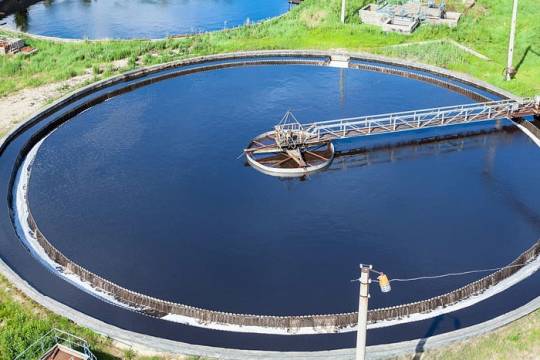
Sewage treatment plants offer a multitude of advantages that contribute to public health, environmental protection, and sustainable development.
Advantages of STP (Sewage Treatment Plant)
Protection of Public Health: One of the primary advantages of sewage treatment plants is the protection of public health. By removing harmful pathogens, bacteria, and contaminants from wastewater, these facilities help prevent the spread of waterborne diseases such as cholera, typhoid, and gastroenteritis. Treated effluent can be safely discharged into water bodies or reused without posing significant health risks to humans or animals.
Environmental Protection: Sewage treatment plants play a crucial role in safeguarding the environment by preventing pollution of water bodies. Untreated sewage contains a variety of pollutants, including organic matter, nutrients (such as nitrogen and phosphorus), heavy metals, and toxins. When discharged into rivers, lakes, or oceans, these pollutants can degrade water quality, harm aquatic life, and disrupt ecosystems. Treatment plants remove or reduce these contaminants, minimizing their impact on the environment and preserving natural habitats.
Improvement of Water Quality: By treating wastewater to remove pollutants, sewage treatment plants contribute to the improvement of water quality in receiving waters. Clean water is essential for supporting aquatic ecosystems, recreational activities, and various uses such as irrigation and industrial processes. Treated effluent that meets regulatory standards can be safely discharged into water bodies, enhancing overall water quality and reducing the risk of contamination.
Resource Recovery: Sewage treatment plants facilitate the recovery and reuse of valuable resources from wastewater. For example, the organic matter removed during treatment can be converted into biosolids through processes such as anaerobic digestion or composting. These biosolids can then be used as fertilizer in agriculture, closing the nutrient loop and reducing the need for synthetic fertilizers. Additionally, treated wastewater can be recycled for irrigation, industrial cooling, or even potable water supply through advanced treatment processes like reverse osmosis or ultraviolet disinfection.
Mitigation of Odors and Nuisances: Proper treatment of sewage helps mitigate the unpleasant odors and nuisances associated with untreated wastewater. By removing organic matter and pathogens, treatment plants reduce the risk of foul odors, insect breeding, and aesthetic degradation in surrounding areas. This enhances the quality of life for nearby residents and reduces complaints related to odor pollution.
Compliance with Regulations: Sewage treatment plants ensure compliance with environmental regulations and standards governing wastewater discharge. Regulatory agencies establish limits on pollutant concentrations in effluent to protect water quality and public health. By treating wastewater to meet these standards, treatment plants help industries, municipalities, and communities avoid fines, legal penalties, and reputational damage associated with non-compliance.
In summary, sewage treatment plants offer a wide range of advantages, including protection of public health, environmental preservation, resource recovery, and regulatory compliance. Investing in wastewater treatment infrastructure is essential for promoting sustainable development and ensuring a cleaner, healthier future for generations to come.
Best Sewage Treatment Plants Manufacturer in India
If you are looking for a Sewage Treatment Plants Manufacturer in India, look no further than TR Aqua Private Limited, TR Aqua Private Limited is a leading manufacturer and supplier of Sewage Treatment Plants in India.
For more details, please contact us!
Website — https://www.traqua.in/
Contact No. — +91–9971440474
Email — [email protected]
#Sewage Treatment Plants Manufacturer#Best Sewage Treatment Plants Manufacturer#stp plant#stp plant manufacturer#stp plant manufacturer in India#Sewage Treatment Plant Manufacturer in India#Sewage Treatment Plant supplier#Sewage Treatment Plant supplier in India#tr aqua private limited
1 note
·
View note
Text
Want to know about Environmental Advantages Of Sewage Treatment Plant?
Do you want to know What is a Sewage Treatment Plant? in this blog we gives you all information you need to know like sewage treatment plant benefits, sewage treatment plant manufacturers in India, An advantages of sewage treatment plants. To learn more STP plants, visit the blog now!
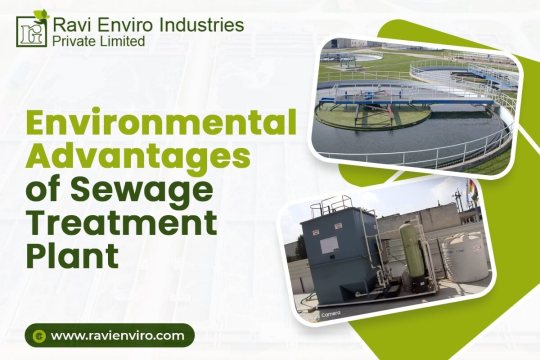
#environmental advantages of sewage treatment plant#sewage treatment plant benefits#sewage treatment plant manufacturers in India#sewage treatment plant advantages#Advantages of Sewage Treatment Plant#advantages of sewage treatment plants#advantages of STP#Sewage Treatment Plant#STP plants#What is a Sewage Treatment Plant
0 notes
Text
MANDATORY SEWAGE TREATMENT: IS STP COMPULSORY IN PUNE?

IS STP COMPULSORY IN PUNE?
Maintaining a clean and sustainable environment depends on the sewage treatment process. The Sewage Treatment Plant (STP) is one of the most important procedures in sewage management. In order to make wastewater suitable for reuse or disposal, STPs are made to treat it and eliminate any impurities.
Pune and other developing cities face serious challenges with sewage control. In order to maintain environmental sustainability and public health, efficient sewage management techniques are essential given the growing urban population and mounting strain on the sewage infrastructure. The sewage treatment plant (STP) is one of the most important parts of the infrastructure for sewage management. But the issue remains: Is STP compulsory in Pune? We shall examine the response to this query and its ramifications for Pune’s sewage management in this blog.
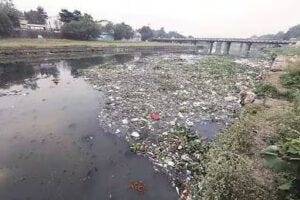
Sewage Management in Pune
The garbage produced by homes, businesses, industries, and other establishments in Pune is frequently thrown into the rivers and other water sources untreated. This has resulted in serious environmental damage and a health risk to the public, spreading water-borne illnesses and endangering lives. Is STP compulsory in Pune? The Pune Municipal Corporation (PMC) has started an initiative to construct and maintain sewage treatment plants throughout the city in an effort to help address this problem. The initiative’s goal is to create long-lasting sewage treatment facilities to raise city residents’ standard of living in general.

STPs Law and Regulations in Pune
In order to tackle the problems pertaining to sewage management in the city, the Pune Municipal Corporation (PMC) has implemented legislation concerning STPs. The PMC has mandated that internal STPs be installed in all new residential and commercial buildings. Before receiving completion certificates for their projects, the builders and developers have to make sure that the STPs are operating properly. By requiring new buildings to have wastewater treatment equipment, this law lessens the strain on centralized treatment plants and stops untreated sewage from being released into the environment.
Pune’s STP laws are designed to encourage environmentally friendly methods of managing sewage. The PMC is strengthening the city’s overall sewage management infrastructure by requiring STPs for new developments. To satisfy increasing expectations, it is crucial to make sure that these laws are properly implemented and that the current infrastructure is updated.
Is STP compulsory in Pune?
Yes, STP is compulsory in Pune. All new residential and commercial buildings must have an internal STP, according to a mandate issued by the Pune Municipal Corporation (PMC). Before receiving completion certificates for their projects, builders and real estate developers need to make sure the STPs are operating properly. This legislation intends to lessen the load on centralized sewage treatment plants and promote sustainable sewage management practices in new construction, even if it does not apply to structures that already exist.
Challenges in sewage management:
Pune faces a number of difficulties in this area, making efficient sewage control techniques imperative. Even though there is already sewage infrastructure in place, the rapid population increase has put ongoing strain on it, which frequently results in blockages and spilling effluent. These densely populated areas produce a lot of wastewater, which is frequently dumped untreated into adjacent bodies of water, endangering human health and the environment. The problem is further made worse by growing urbanization, inappropriate land use, and poor maintenance.
Is STP compulsory in Pune? What are the penalties for non-compliance?
Pune residents who violate the STP laws risk facing harsh penalties. These sanctions might include monetary fines, permit suspension or revocation, and legal action taken against offenders. The seriousness of the infractions and the type of non-compliance determine how much of a penalty is imposed.
This will depend on the capacity of the STPs. As to the officials, STPs with a capacity of less than 300 kiloliters per day (KLD) will be fined Rs 2,500; those with a capacity between 300 and 500 KLD will be penalized up to Rs 4,000; and those with a capacity beyond 500 KLD will be fined Rs 5,000.
In conclusion,
Is STP compulsory in Pune? So, every new residential and commercial building in Pune is required to comply with STP, and non-compliance carries harsh fines. To update and strengthen the current sewage system and satisfy the city’s expanding needs, more substantial efforts are needed. A comprehensive strategy is needed to address the problems with sewage management, one that includes infrastructure investment, regulation enforcement, and public awareness-raising. Pune residents can benefit from cleaner and healthier surroundings thanks to efficient sewage control techniques. A step in the right direction towards accomplishing this goal is the Pune Municipal Corporation’s (PMC) initiative to require STPs in all new developments.
Overcoming these obstacles and eventually making Pune a sustainable and livable city will require maintaining the sewage infrastructure and firmly enforcing the laws. What do you think? Is STP compulsory in Pune? Comment below.
#water treatment#etp plant manufacturers#sewagetreatmentplant#watertreatmentsolutions#pune#india#stp manufavturers in maharashtra#wastewatertreatment
1 note
·
View note
Text
ETP Manufacturers in India Setting Environmental Standards
In recent years, India has seen a significant surge in industrialization, accompanied by an increasing concern for environmental sustainability. As industries continue to expand, the need for effective wastewater treatment becomes paramount. This is where Effluent Treatment Plants (ETPs) play a crucial role. ETPs are designed to treat industrial wastewater and ensure that effluents released into the environment meet regulatory standards, thus minimizing environmental impact. In India, the ETP manufacturing sector has emerged as a key player in the country's journey towards sustainable industrial practices.
Effluent Water Treatment Plant
Leading the charge are several prominent ETP manufacturers in India, who are not only meeting domestic demand but also making strides in global markets. These manufacturers are leveraging cutting-edge technology, innovative designs, and a commitment to sustainability to deliver high-quality ETP solutions.
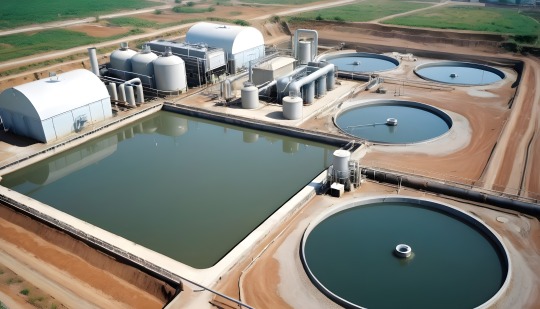
One such company making waves in the industry is S.S ENGINEERING WORKS LIMITED. With a proven track record of excellence, S.S ENGINEERING WORKS LIMITED has established itself as a leading ETP manufacturer in India. The company's state-of-the-art manufacturing facilities and experienced team enable them to design and deliver customized ETP solutions tailored to the specific needs of different industries.
S.S ENGINEERING WORKS LIMITED ETP systems are renowned for their efficiency, reliability, and compliance with stringent environmental regulations. By incorporating advanced treatment processes such as biological treatment, chemical oxidation, and membrane filtration, they ensure that industrial effluents are treated to the highest standards before discharge.
In addition to S.S ENGINEERING WORKS LIMITED several other manufacturers across India are making significant contributions to the ETP sector. Companies like S.S ENGINEERING WORKS LIMITED and S.S ENGINEERING WORKS are at the forefront of innovation, continuously developing new technologies and improving existing systems to enhance performance and sustainability.
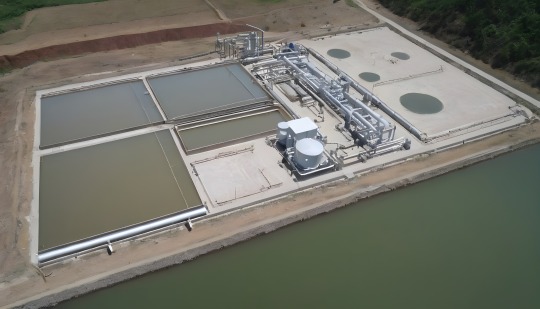
What sets Indian ETP manufacturers apart is their focus on affordability without compromising on quality. Recognizing the diverse needs of different industries, these manufacturers offer a range of ETP solutions that cater to both large-scale industrial complexes and smaller enterprises. This accessibility ensures that businesses across various sectors can adopt sustainable wastewater management practices, contributing to India's overall environmental goals.
Moreover, Indian ETP manufacturers India are increasingly embracing digitization and automation to improve operational efficiency and minimize resource consumption. By implementing smart monitoring and control systems, they can optimize the performance of ETPs, reduce energy consumption, and minimize the use of chemicals, further reducing their environmental footprint.
Furthermore, these manufacturers are actively engaged in research and development to address emerging challenges in wastewater treatment. Whether it's tackling emerging contaminants, improving sludge management practices, or exploring alternative treatment methods, Indian ETP manufacturers are at the forefront of innovation, driving the industry forward.
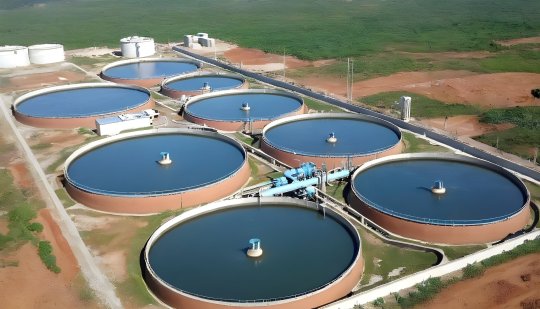
In conclusion, the ETP manufacturing sector in India is experiencing rapid growth and innovation, driven by a commitment to environmental sustainability and technological advancement. Companies like S.S ENGINEERING WORKS LIMITED and S.S ENGINEERING WORKS are leading the way, setting new standards for excellence in wastewater treatment. As India continues to prioritize environmental conservation and sustainable development, the role of ETP manufacturers will only become more critical in ensuring a cleaner and greener future for generations to come.
#Effluent Water Treatment Plant#etp manufacturer india#stp manufacturer india#sewage Water Treatment Plant
0 notes